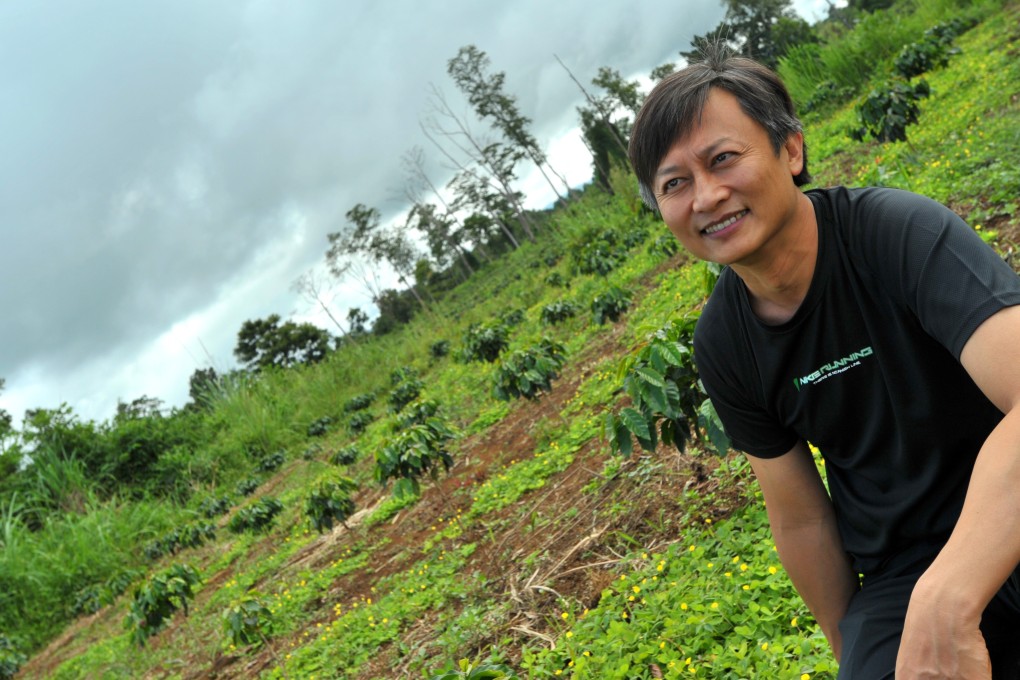The ex-Hong Kong trader reviving Laos' gourmet coffee industry
Sam Say was 10 when he fled post-war Laos for a Thai camp. Now he's back, and training compatriots to grow coffee on the Bolaven Plateau


Children pour into the field like marbles spilled from a bag. They spin and tumble as they race towards a rustic cafeteria in the middle of lush farmland, their faces creased in smiles. Under the cafeteria's tin roof the children eat with their fingers, rolling sticky rice into balls and drenching them with spicy Laotian salsa.
Most of the boys and girls are less than 10 years old - the oldest is 12, the youngest five. They have just returned from a lesson with a new teacher in the first classroom most of them have ever known. The children belong to some of the 38 families who live on the 70-hectare Bolaven Farm (www. bolavenfarms.com), in southern Laos, many of whom were once close to starvation, battling diseases such as protozoal diarrhoea, hepatitis A and typhoid.
Sam Say, the farm's founder, watches the children and smiles. In Laos, it's common for children as young as eight to work a 12-hour day on the land; 40 per cent of those under five are malnourished and 70 per cent of the population must scrape by on less than US$2 per day. Thanks to Say's single-minded dedication, however, the Bolaven Farm children are now well-fed, disease free and able to attend school while their parents can - providing they successfully complete a two-year training programme - become self-sufficient farmers. The deal includes ownership of a plot of land they can bequeath to their children.
Getting to this point has not been easy. The farm was recently raided by bandits with shotguns, corrupt government officials hover in search of bribes and a Vietnamese coffee company accustomed to exploiting local farmers has blocked some of the access roads.
Say, born in 1967, was just 10 when he fled Laos with his family, not expecting to return. Now he's back, using his personal fortune to rebuild a high-end coffee industry that once supported thousands. And he's doing it with technologies that could revolutionise agriculture and change the way aid is delivered to struggling nations. Say is more surprised than anybody that the poorest of the poor in the land of his birth have become his mission.
'When my brother wanted to come back to Laos 10 years ago I tried very hard to dissuade him,' he says. 'I thought he was making a dreadful mistake. I told him there was nothing for us in Laos.'